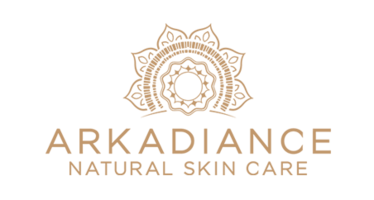
Whether or not you believe in meditation's benefits for cosmic clarity, you can't argue with the health benefits. Harvard Medical School recently shared that 57% of hypertension patients saw a significant drop in blood pressure after being trained in relaxation techniques. https://www.health.harvard.edu/staying-healthy/understanding-the-stress-response
I have seen seismic changes in my physical and emotional health with meditation. If I meditate five days a week for just 5 - 10 minutes a day, I see far less eczema, less breakouts, better sleep, and better patience with my family. My girls definitely comment and see the difference between Happy Mommy and Tense Mommy. I'm thrilled that Arkadiance will be hosting an Meditation and Mimosas event in Cincinnati in a few weeks so it makes sense to share some science that explains why I want to teach meditation.
Growing up as the child of Indian immigrants, I was exposed to meditation at an early age at Indian Chinmayan yoga camps. It was pretty awesome to learn belly breathing at age 10 as it gave me an an extra tool for managing stress as an adult. When yoga became part of our American pop culture, most Indians found it thrilling to see the "Om" symbol be worn on necklaces and tattoos as more and more people strived to live in Equanimity and Peace. In 2009, I went so far to become a RYT-200 certified yoga teacher with the goal to further my understanding of how yoga drives healing. It is a full circle moment now to be the one teaching yoga and meditation to my Arkadiance clients and friends.
Meditation is being increasing studied for it's health benefits. More and more clinical studies are showing the link between meditation and improved confidence, pain management, weight loss, and stress management. Large corporations like Procter and Gamble and General Electric have added Employee Wellness as a priority, bringing in-house yoga and meditation teachers to train employees on the basics.
Harvard Medical School has been actively studying meditation's clinical benefits for more than a decade. On March 16, 2016, they posted about a clinical study proving how relaxation techniques can reduce the stress response and thus the dependency on blood pressure medicine.
https://www.health.harvard.edu/staying-healthy/understanding-the-stress-response
"Dr. Herbert Benson, director emeritus of the Benson-Henry Institute for Mind Body Medicine at Massachusetts General Hospital, has devoted much of his career to learning how people can counter the stress response by using a combination of approaches that elicit the relaxation response. These include deep abdominal breathing, focus on a soothing word (such as peace or calm), visualization of tranquil scenes, repetitive prayer, yoga, and tai chi." The link to the article explains how 56% of the participants who practiced a relaxation technique like meditation noticed a 5 point drop in their systolic blood pressure. 28% of this "Relaxation" group were able to drop one of their blood pressure medicines. These findings are astounding. 25% of people being able to protect their body from an unnecessary drug and it's side-effects through the delightful process of prioritizing a moment to relax when stress is triggered. 10 deep breaths may be all it takes to change your health. Who wouldn't do it?
The article further explains how meditation acts works to stop the negative cascade of hormones that come from a stress response. Your sympathetic nervous system responds to the stressor with the classic "Fight or Flight" response flooding your body with adrenaline and cortisol so you can fight or run from the imaginary tiger. When in fact, the adrenaline and cortisol don't do much to help you deal with the tough conversation with your boss or prepare for your big presentation. So having a few breathing exercises in your back pocket to help you through that response will trigger the system that does help you get grounded and focus, your parasympathetic system. Your parasympathetic system is known for helping you "Rest and Digest". Just a few deep breaths can help turn the situation around and stop the downward spiral of stress hormones.
In my yoga-teacher training, I learned from my yoga guru, Shan Lakhia, about the space between breaths. This moment, where the breath is held in or held out but is not moving, that is where our deepest recharge happens. It is between the breaths where our connection to the universe and ourselves is strongest because it is where the mind is quiet.
Wishing you a few moments of a quiet mind,
Ami




This is spot on Ami! Amazing what meditation — or even a snippet of that — just momentary awareness of your breath, taking a minute to stop and feel your inhale, your exhale, can be so transformative! So interesting to find clinical proof of it as well.